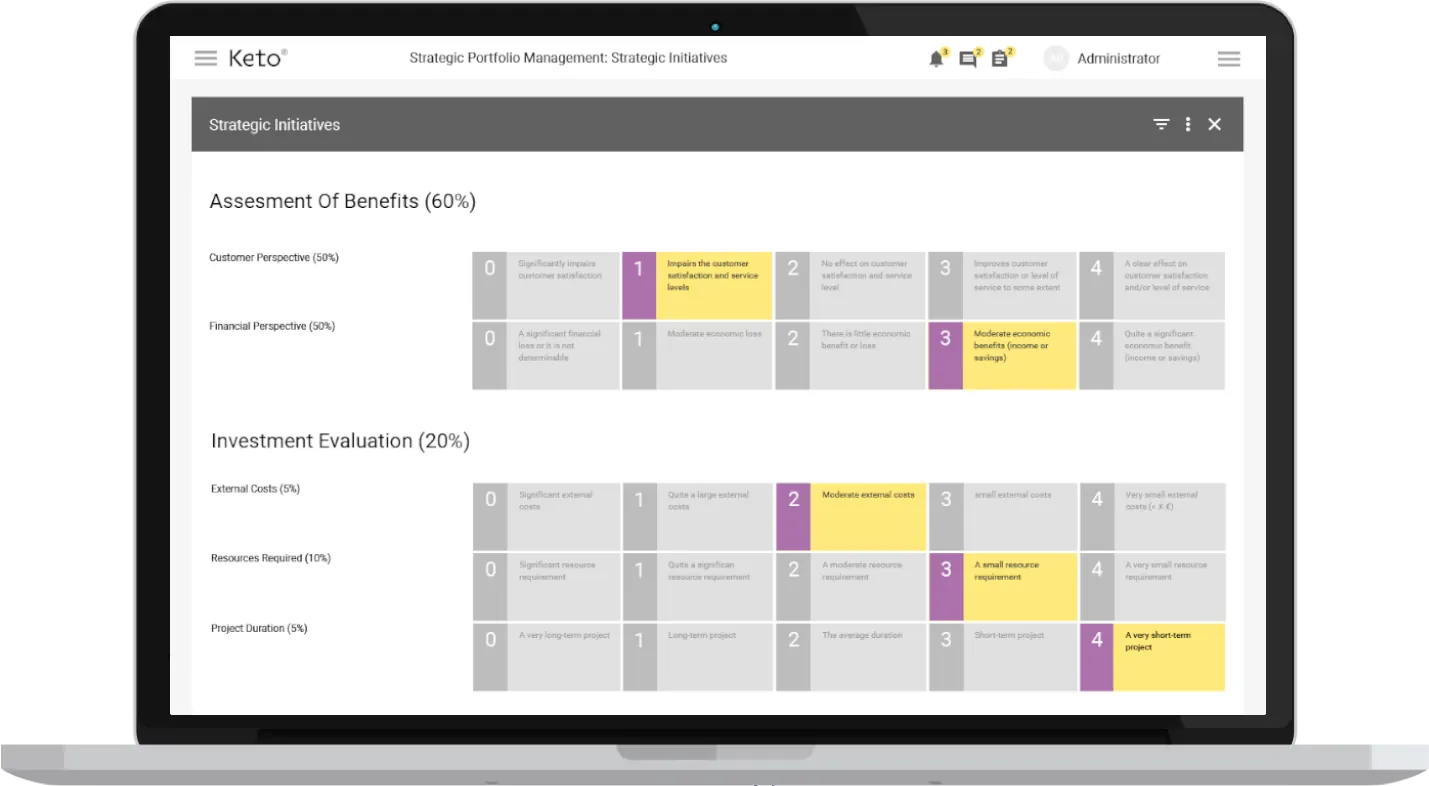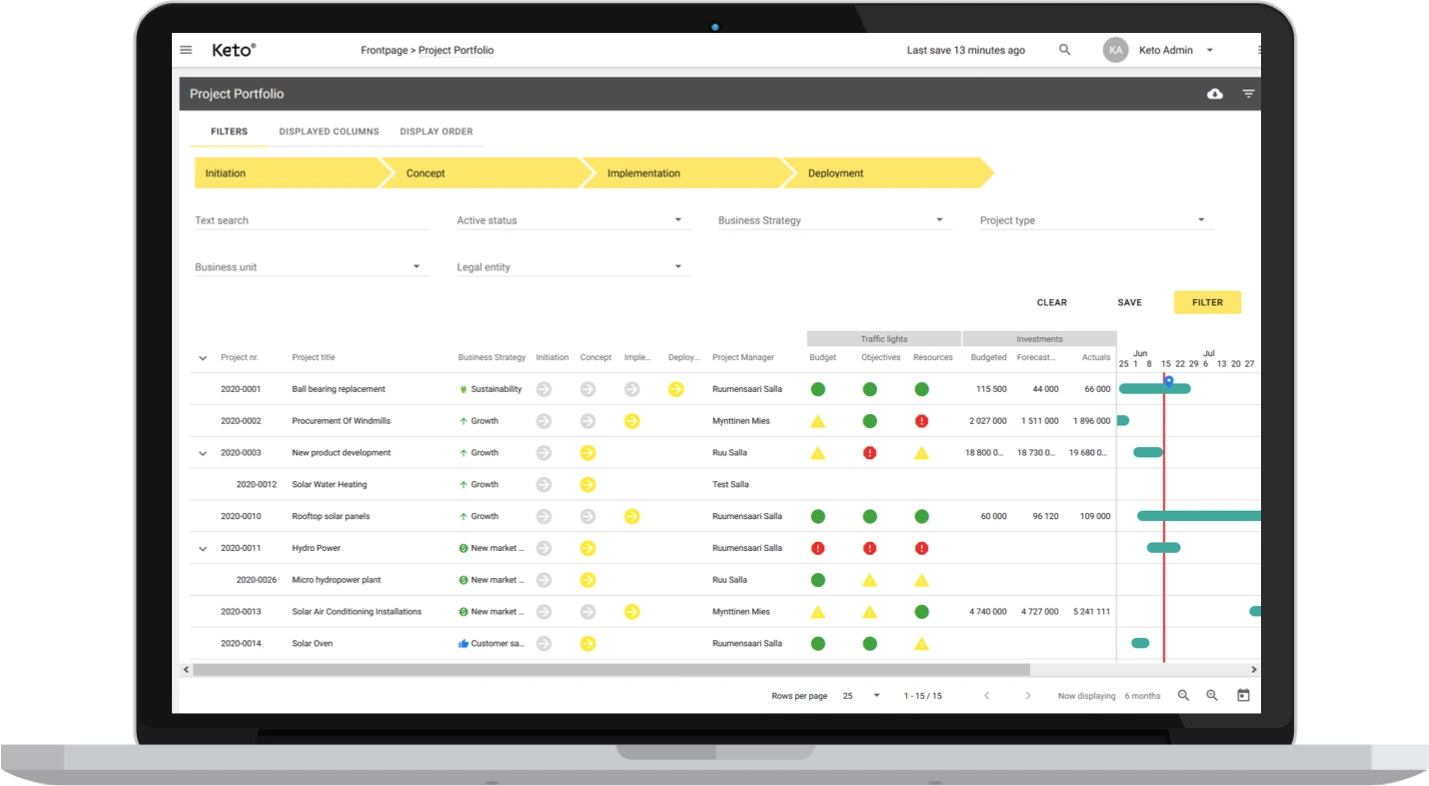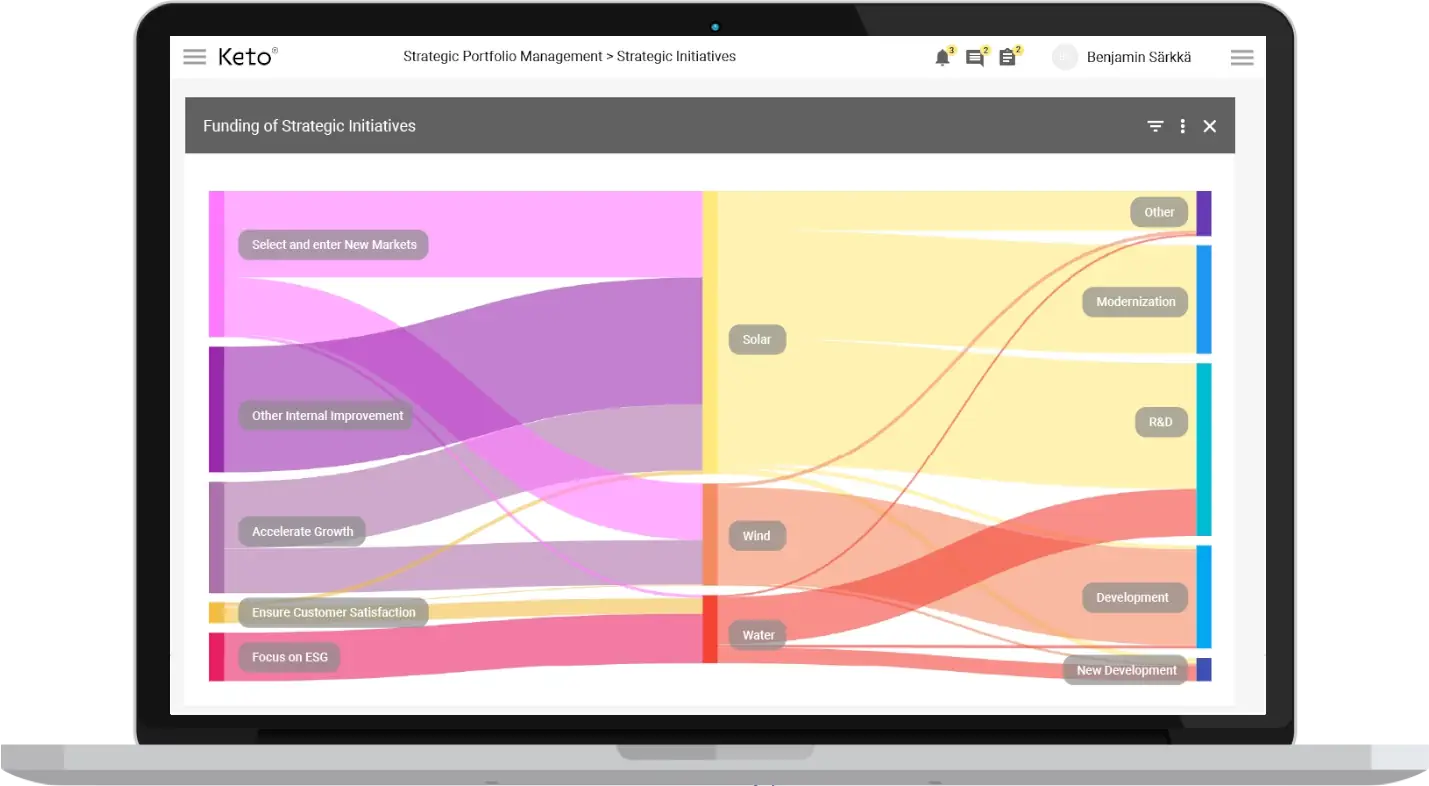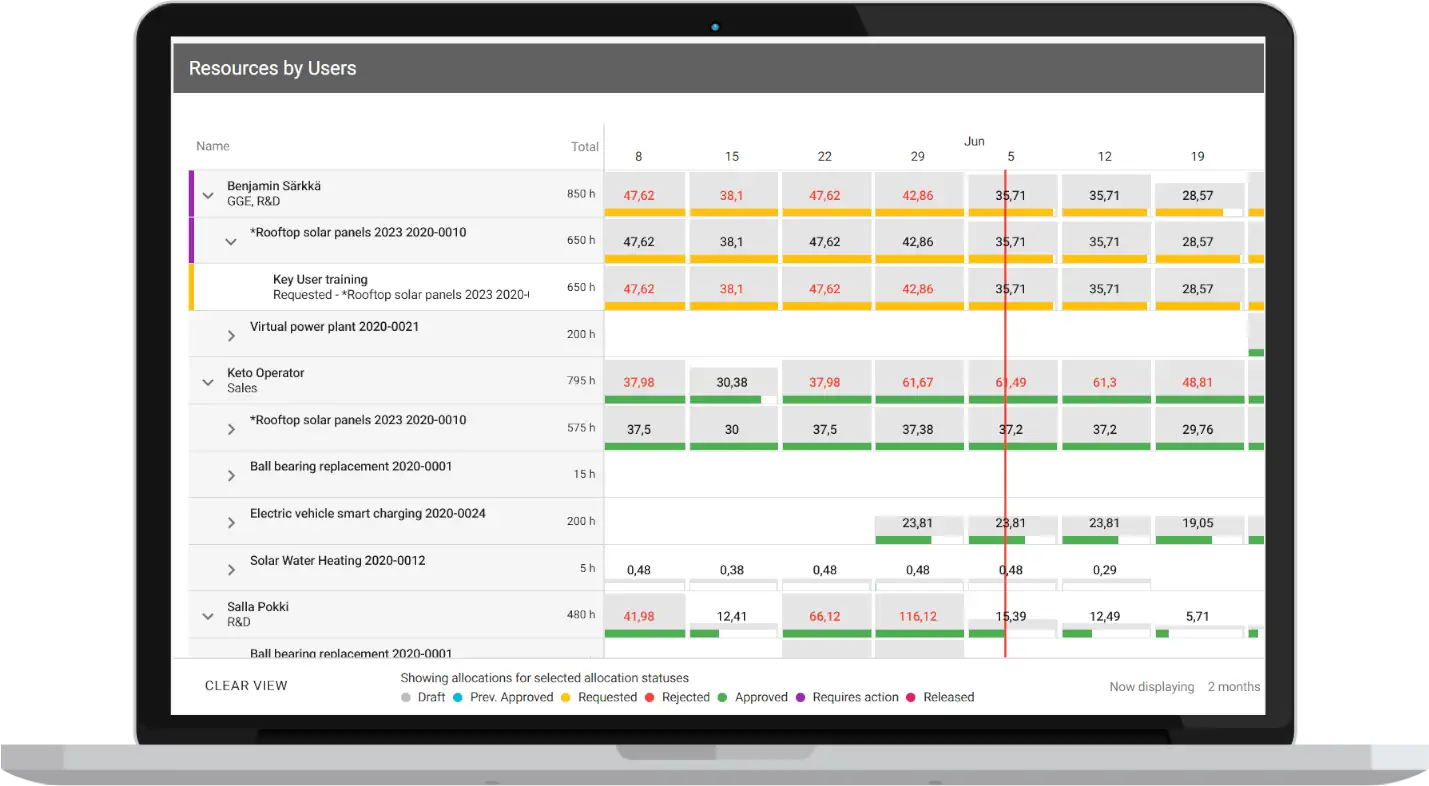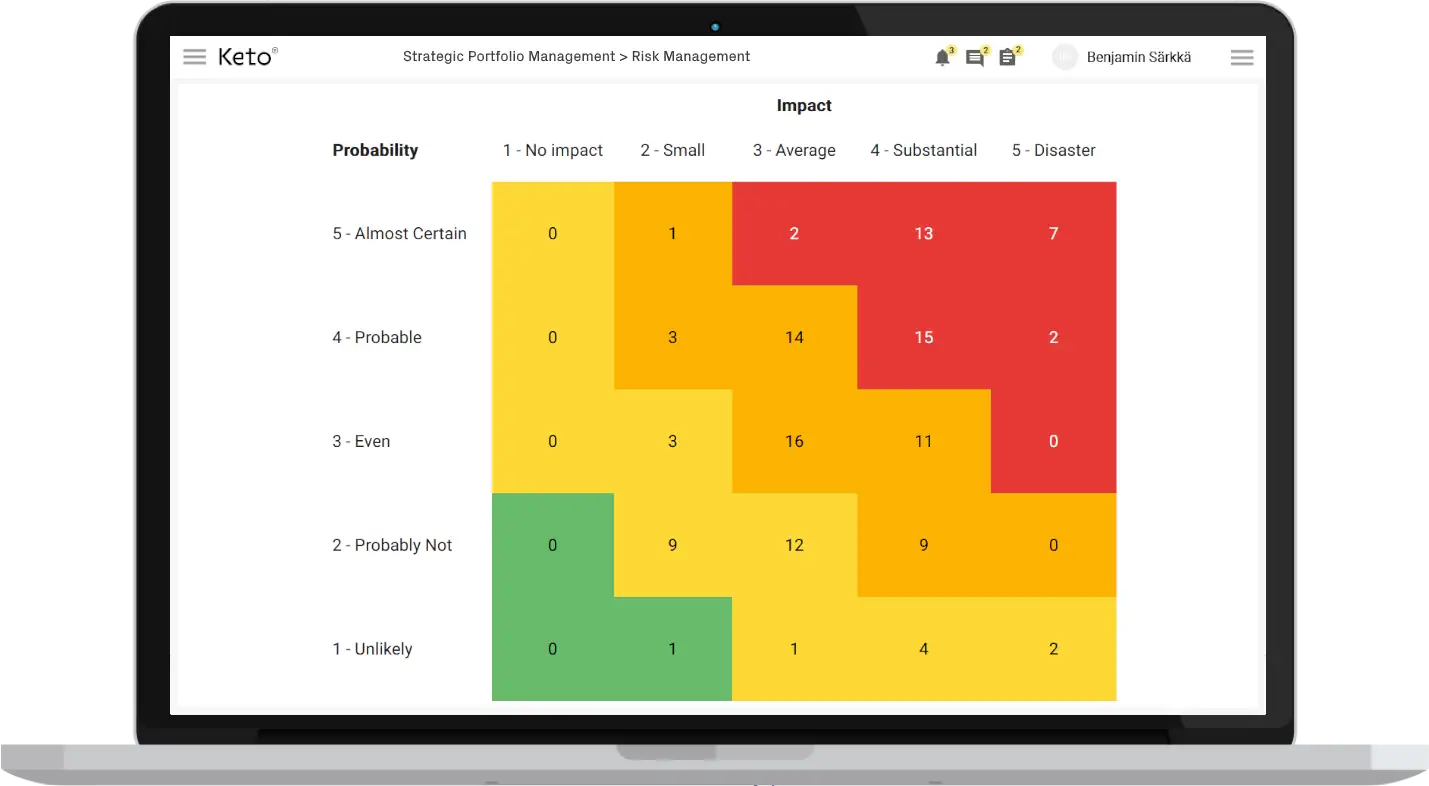
What is Project Portfolio Management (PPM)?: A Cornerstone of Successful Business Strategy
In the complex tapestry of modern business, Project Portfolio Management (PPM) emerges as an indispensable thread, intertwining strategy with execution. At its core, PPM is the art and science of aligning projects with the strategic objectives of an organisation. This alignment ensures that every project not only contributes positively to the immediate goals but also advances the long-term vision of the business.

Definition and Scope
Project Portfolio Management (PPM) refers to the centralised management of one or more project portfolios to achieve strategic objectives. It’s a comprehensive approach that includes the selection, prioritisation, and control of an organisation’s projects and programs. The essence of PPM lies in its ability to ensure that an organisation can leverage its project selection and execution success, acting as a bridge between strategy and implementation. In essence, PPM is about ensuring the right projects are executed at the right time, optimising resource allocation and maximising value delivery.
Strategic Alignment
The true power of PPM lies in its capacity to link projects with an organisation’s strategic objectives. By ensuring this alignment, PPM turns every project into a strategic step towards achieving broader organisational goals. It’s not about managing projects in isolation but about seeing them as integral components of the strategic whole.
Resource Optimisation
PPM is instrumental in optimising the allocation and utilisation of resources across various projects. This holistic view allows for better decision-making, ensuring that resources are allocated where they are most needed and can deliver the most value.
Risk Management and Governance
Risk management and governance are key facets of PPM. By identifying potential risks at the portfolio level, PPM enables organisations to take proactive measures to mitigate them. The governance framework provided by PPM ensures consistency in decision-making and maintains a balance between flexibility and control within the project portfolio.
The Role of Technology in PPM
In today’s digital era, technology plays a pivotal role in enhancing the effectiveness of PPM. Project Portfolio Management software, like the Keto AI+ Platform, stands at the forefront of this technological revolution. By offering a suite of tools for strategic alignment, resource management, risk assessment, and financial oversight, PPM software like Keto AI+ streamlines the management process, making it more efficient and effective.
Keto AI+ Platform: A Case Study in Effective PPM
The Keto AI+ Platform exemplifies the integration of advanced technology in PPM. As a comprehensive Strategic Portfolio Management solution, it leverages AI, no-code process modelling, and a secure cloud platform to offer in-depth strategic insights and robust project management capabilities. This platform not only enhances strategic alignment but also provides a real-time view of project progress, performance tracking, and effective resource management.
The Mechanics of Project Portfolio Management
Selection and Prioritisation of Projects
A critical component of PPM is the selection and prioritisation of projects. This involves evaluating projects based on strategic fit, potential benefits, feasibility, and resource requirements. The Keto AI+ Platform enhances this process with its advanced analytics and prioritisation features, enabling organisations to select projects that align with their strategic goals and deliver maximum value.
Monitoring and Controlling Projects
Once projects are selected and prioritised, PPM involves monitoring their execution to ensure they stay on track and align with strategic objectives. Tools like the Keto AI+ Platform provide real-time tracking of project progress and performance, enabling organisations to identify potential issues early and take corrective action.
Financial Management
Financial management is a key aspect of PPM. Effective PPM requires overseeing budgeting, financial forecasting, and reporting. With tools like Keto AI+, financial oversight becomes more streamlined, providing real-time tracking of budgets and expenditures, thus ensuring projects are financially viable.
Capacity Planning and Resource Management
Another vital aspect of PPM is managing the allocation of resources across the project portfolio. Keto AI+ provides an integrated view of an organisation’s resource pool, including skills, experience, and availability, enabling effective resource allocation and management. This ensures that resources are used efficiently and are aligned with the most important strategic initiatives.
Risk Management
Risk management within PPM involves identifying, assessing, and mitigating risks across the project portfolio. Keto AI+ offers comprehensive risk management functionalities, allowing organisations to track risks, assess their impact, and manage them effectively to minimise exposure to risk.
The Role of PPM in Achieving Strategic Objectives
Aligning Projects with Strategic Goals
PPM ensures that every project undertaken by an organisation is in line with its strategic goals. This alignment is critical for the overall success of the organisation and the achievement of long-term objectives.
Enhancing Decision Making
Through the consolidation of project data and the provision of analytics and reporting tools, PPM aids in enhancing decision-making at all levels of the organisation. Platforms like Keto AI+ provide valuable insights that guide strategic and operational decisions.
Adaptability and Future-Proofing
In a constantly evolving business environment, PPM tools must be adaptable and future-proof. The Keto AI+ Platform, with its AI and machine learning capabilities, predictive analytics, and intelligent automation, represents the cutting edge in PPM technology. This adaptability is crucial for organisations to remain competitive and responsive to changes.
Conclusion
Project Portfolio Management is a critical function in modern organisations, aligning projects with strategic objectives, optimising resources, and enhancing decision-making. The integration of technology, particularly through platforms like Keto AI+, has revolutionised PPM, making it more efficient, effective, and adaptable to the changing business landscape. As organisations continue to navigate the complexities of the business world, PPM stands as a beacon, guiding them towards strategic success and long-term growth.
Read next
